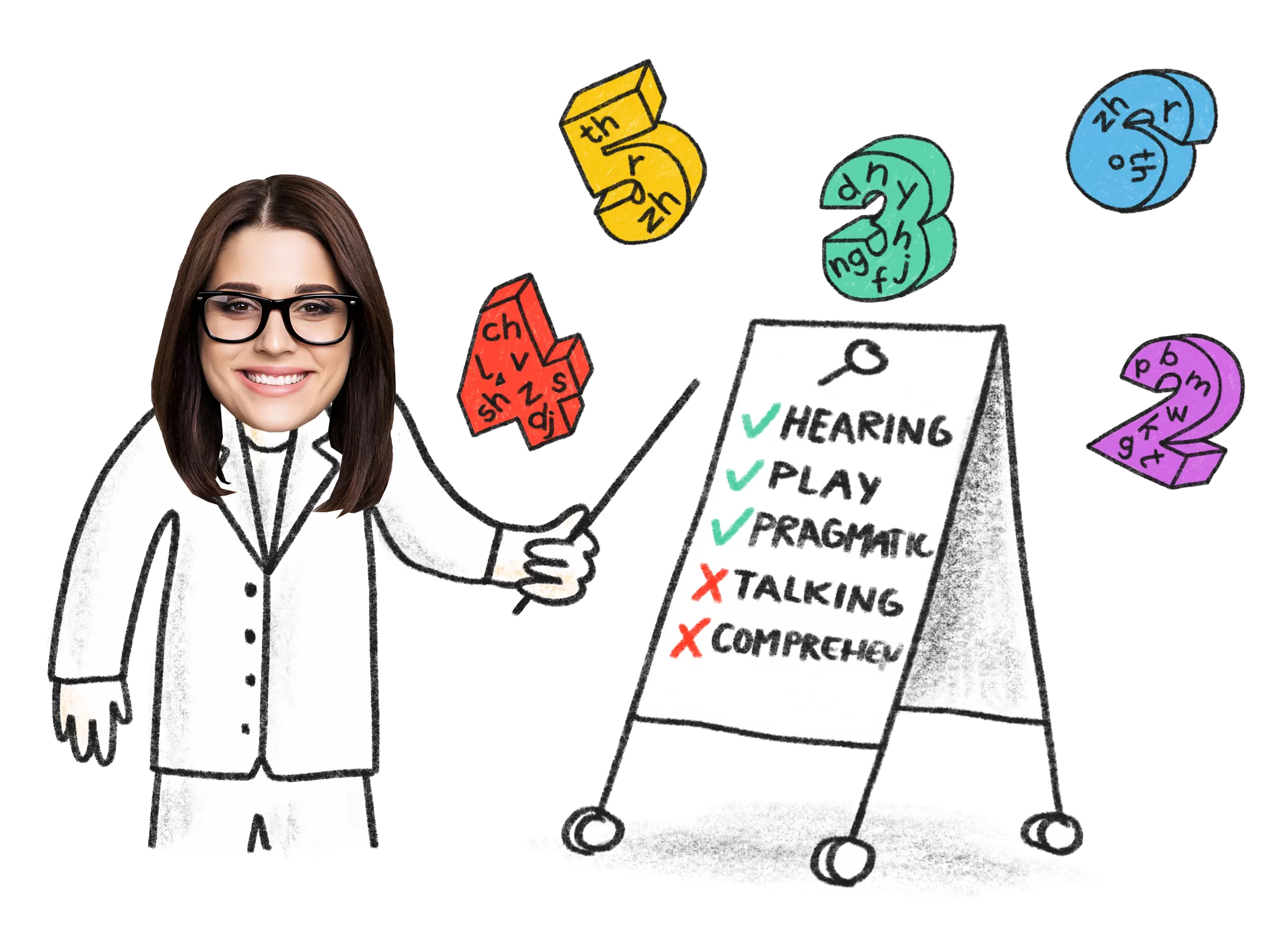Will My Nonverbal Autistic Child Ever Talk?
Jan 15, 2022 As a parent of a child with autism, there are many unanswered questions when it comes to your child’s development. Unfortunately, there’s no clear yes or no answers to questions related to autism and development.
For children with autism, the rate of development is slightly different. Many children with autism are behind in speech and language development. This often leads to the question, ‘‘Will my nonverbal autistic child ever talk?”
What Does Nonverbal Autism Mean?
Nonverbal autism is not a diagnosis within itself. It simply means a child or person struggles with verbal communication. For those in the autism spectrum, there’s no clear-cut line between verbal and nonverbal autism. Like autism spectrum disorder itself, it’s complicated.
Here are a few examples of how complicated nonverbal communication is within the autism spectrum:
- Some children with autism will say simple words to communicate what they want. For instance, a child will say “car” to mean “I want to go for a car ride.” But for those who don’t know the child, they will think the child is just identifying the vehicle. While this child can use simple words to ask a question, he/she cannot answer a follow-up question like “Where do you want to go?”
- Other children are able to use more complex words, but they lack meaningfulness. Example: They can echo or recite sentences from movies or scripts learned from a therapist. When this type of nonverbal communication is done, the child is not communicating their wants or needs.
- Many children with nonverbal autism are able to communicate there wants and needs through sign language, flashcards or digital devices.

Does Nonverbal Autism Mean Low IQ?
To be honest, there is no known causes of why individuals with autism become nonverbal. This is a subject within the autism spectrum that needs more research. Although we don’t know why many people with autism are nonverbal, it needs to be understood that nonverbal autism is not due to a lack of intelligence.
There are many societal misconceptions about autism. One of those misconceptions is that nonverbal autism is the result of low intelligence. However, many children and adults within the autism spectrum are able to understand more than they are able to communicate through language.
It’s been historically assumed someone who is nonverbal also has a low IQ below 70. The problem with this assumption is that standardized IQ tests are not effective when used on individuals with autism. Therefore, some people with nonverbal autism may be misdiagnosed with intellectual disability due to standard methods of IQ testing. A 2011 research study found low IQ and autism together were less common than historically thought.
Because intellectual disabilities are not the cause of nonverbal autism, some research points to a positive correlation between autism and genius. A 2015 Cambridge University study found those with autistic traits were more likely to pursue careers in areas involving high intelligence including technology, engineering, science, and math.
Boost Your Child’s Speech Development!
Improve language & communication skills with fun learning!

Will My Nonverbal Autistic Child Ever Talk?
Within the autism spectrum, roughly 40% of children are considered to be nonverbal. This percentage seems very high and is also a depressing outlook for parents whose children are nonverbal. But there is one recent research study that holds promising results for nonverbal autistic children and late speech development.
A study from the Center for Autism and Related Disorders looked at 535 children diagnosed with autism between the ages of 8 to 17. All participants experienced extreme language delays at four years old. At the age of 4, the participants’ language delays included nonverbal and only simple words or phrases.
The research study found the following positive results for children with nonverbal autism:
- 47% of participants became fluent speakers
- 70% spoke were later able to speak in simple sentences
- In an effort to predict if nonverbal children with autism would develop speech, it was found that most participants had higher IQ’s than previously thought
- Repetitive behaviors and intense interests didn’t affect language development
This study published in Pediatrics holds promising hope for parents wondering if their nonverbal child with autism will ever talk. Although 70% of the children developed speech enough to only say simple phrases. I believe any language development is a positive step forward for a nonverbal child!
If you are wondering whether your nonverbal child will ever talk, I would say “Yes!” There’s always hope for language development. Some children with autism simply need longer to develop with the help of speech and occupational therapy.
Conclusion
I’ve asked myself this question many times about my own son since his speech regression at the age of three. While my son is moving forward with receiving an autism diagnosis, a speech therapist wants us to begin using a picture communication system with him.
While I’m excited to start flashcards with him so he can point to his needs and wants, I’ve also found myself asking the question: “Will he be communicating with flashcards all his life?” I don’t want a picture communication system to be the end result of his speech and language development. I want to be able to exchange conversation with him eventually. Whether it is soon or years down the road, I believe my own son will speak again even with the setback of a speech regression.
Just because a nonverbal child with autism doesn’t use words to communicate does mean he/she has an intellectual disability. Studies are finding in most cases children with nonverbal autism will grow up to develop speech and language skills. Just at a different rate of development than those without autism.

